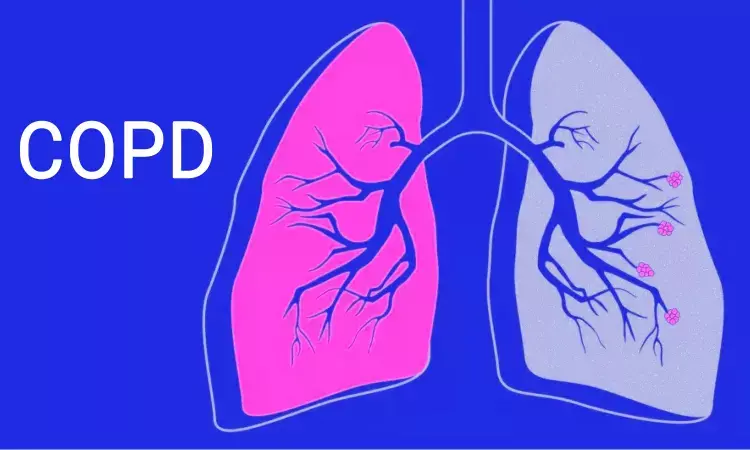- Home
- Medical news & Guidelines
- Anesthesiology
- Cardiology and CTVS
- Critical Care
- Dentistry
- Dermatology
- Diabetes and Endocrinology
- ENT
- Gastroenterology
- Medicine
- Nephrology
- Neurology
- Obstretics-Gynaecology
- Oncology
- Ophthalmology
- Orthopaedics
- Pediatrics-Neonatology
- Psychiatry
- Pulmonology
- Radiology
- Surgery
- Urology
- Laboratory Medicine
- Diet
- Nursing
- Paramedical
- Physiotherapy
- Health news
- Fact Check
- Bone Health Fact Check
- Brain Health Fact Check
- Cancer Related Fact Check
- Child Care Fact Check
- Dental and oral health fact check
- Diabetes and metabolic health fact check
- Diet and Nutrition Fact Check
- Eye and ENT Care Fact Check
- Fitness fact check
- Gut health fact check
- Heart health fact check
- Kidney health fact check
- Medical education fact check
- Men's health fact check
- Respiratory fact check
- Skin and hair care fact check
- Vaccine and Immunization fact check
- Women's health fact check
- AYUSH
- State News
- Andaman and Nicobar Islands
- Andhra Pradesh
- Arunachal Pradesh
- Assam
- Bihar
- Chandigarh
- Chattisgarh
- Dadra and Nagar Haveli
- Daman and Diu
- Delhi
- Goa
- Gujarat
- Haryana
- Himachal Pradesh
- Jammu & Kashmir
- Jharkhand
- Karnataka
- Kerala
- Ladakh
- Lakshadweep
- Madhya Pradesh
- Maharashtra
- Manipur
- Meghalaya
- Mizoram
- Nagaland
- Odisha
- Puducherry
- Punjab
- Rajasthan
- Sikkim
- Tamil Nadu
- Telangana
- Tripura
- Uttar Pradesh
- Uttrakhand
- West Bengal
- Medical Education
- Industry
LABA/LAMA combo bests monotherapy in COPD, recommends ATS guideline

Clinicians have a new weapon in their armamentarium for dealing with the pharmacologic management of COPD in patients complaining of exercise intolerance or dyspnea in the form of a new guidance.
The American Thoracic Society has released an official clinical practice guideline in which a panel of experts strongly recommended LABA/LAMA combination therapy over LABA or LAMA alone. The complete guideline detailing all the recommendations has been posted online ahead of print in the American Journal of Respiratory and Critical Care Medicine.
Pharmacologic management of COPD is focused on improving patients' quality of life while reducing the frequency of exacerbations. In this new clinical practice guideline, an expert panel addressed six "emerging questions around COPD management that were not covered in the previous guideline published in 2011," noted Shawn Aaron, MD, co-chair of the guideline committee and professor/senior Scientist at The Ottawa Hospital Research Institute and The University of Ottawa.
"The panel's priority was to formulate questions that were of significant clinical importance to both health care providers and patients," added Linda Nici, MD, co-chair of the guideline committee and professor of medicine at Brown University and Chief of Pulmonary/Critical Care at the Providence VAMC. "This clinical practice guideline is the most rigorous, outcome-driven distillation of the scientific literature to date."
Summary of key recommendations are :
1.Among patients with COPD who complain of dyspnea or exercise intolerance, we recommend LABA/LAMA combination therapy over LABA or LAMA monotherapy (strong recommendation, moderate certainty evidence).
2.Among patients with COPD who complain of dyspnea or exercise intolerance despite dual therapy with a LABA/LAMA, we suggest the use of triple therapy with ICS/LABA/LAMA compared to dual therapy with a LABA/ LAMA in those patients with a history of 1 or more exacerbations in the past year requiring antibiotics or oral steroids or hospitalization (conditional recommendation, moderate certainty evidence).
3.In patients with COPD who are taking triple therapy (ICS/LABA/LAMA), we suggest that the ICS can be withdrawn, if the patient has had no exacerbations in the past year (conditional recommendation, moderate certainty evidence).
4.We do not make a recommendation for or against ICS as an additive therapy to long-acting bronchodilators in patients with COPD and blood eosinophilia, except for those patients with a history of blood eosinophilia and one or more exacerbations in the past year in whom we suggest ICS as an additive therapy (conditional recommendation, moderate certainty evidence).
5.In COPD patients with a history of severe and frequent exacerbations despite otherwise optimal therapy, we suggest against using maintenance oral corticosteroid therapy (conditional recommendation, low certainty evidence).
6.In individuals with COPD, who experience advanced refractory dyspnea despite otherwise optimal therapy, we suggest that opioid-based therapy be considered for dyspnea management, within a personalized shared decision-making approach (conditional recommendation, very low certainty evidence).
Various contributors to the guideline include expert clinicians and researchers with experience in COPD.
The ATS has published nearly 20 clinical practice guidelines on various conditions, ranging from allergy and asthma to TB and other pulmonary infections. For ATS guideline implementation tools and derivatives, go here.
Dr Kamal Kant Kohli-MBBS, DTCD- a chest specialist with more than 30 years of practice and a flair for writing clinical articles, Dr Kamal Kant Kohli joined Medical Dialogues as a Chief Editor of Medical News. Besides writing articles, as an editor, he proofreads and verifies all the medical content published on Medical Dialogues including those coming from journals, studies,medical conferences,guidelines etc. Email: drkohli@medicaldialogues.in. Contact no. 011-43720751


